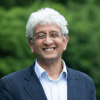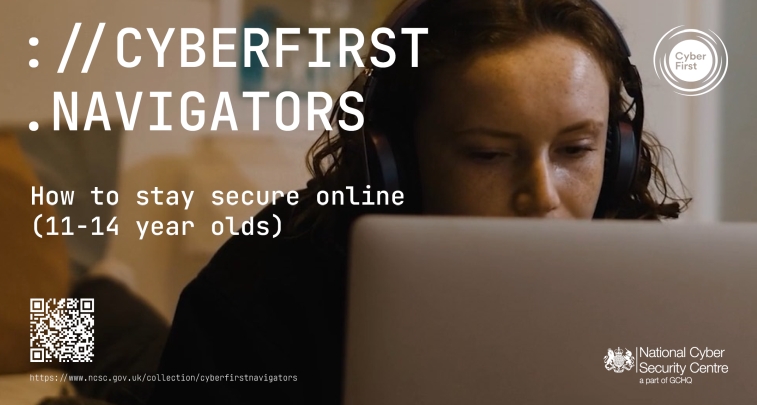Importance of critical thinking – Tackling misinformation in schools

Vivek Govil looks at how education finds itself having to evolve in an era of tech-assisted, large-scale misinformation…

- by Vivek Govil

As of April 2022, there were 5 billion active internet users worldwide, accounting for 63% of the global population.
With learners increasingly using the internet and social media as their preferred knowledge source, the ability to distinguish between good information from reliable sources, and misinformation from seemingly trusted sources has become vital.
A 2022 study by Oxford University Press (OUP), ‘The Matter of Fact’, has revealed that when looking for factual information, two thirds of people around the world turn to Google or other search engines.
Perhaps more concerning is the fact that 42% of 16- to 24-year-olds use social media when looking for facts.
The research captured insights from 5,000 adults spanning five countries across the globe – the UK, US, South Africa, India and Mexico – in an effort to explore how people across the world seek out information and determine its accuracy.
OUP’s research further showed that nearly three quarters of respondents globally reported that the COVID-19 pandemic had made them more cautious about the accuracy of the information they encountered online.
In Britain alone, 61% said that it has become harder to clarify whether something is true.
Importance of critical thinking skills
There is now a need to look beyond the learning of facts alone when teaching the next generation. They need to be able to peel back layers of information and assess whether what they’re reading or hearing is indeed factual.
Just because more of us are using social media doesn’t mean that we’re no longer interested in seeking out truth. 78% of us still consider the understanding of truth and learning of facts as the most important parts of education.
Both undoubtedly still have their place in the learning process, but it’s also the case that the wider education profession should continue to evolve. We need to focus on the importance of critical thinking skills from a younger age.
In recent years, we’ve seen a shift in focus within education policy – and practice – in response to what’s now being demanded of it by the outside world.
Among the recommendations of the recent Times Education Commission were calls to reduce the amount of time spent preparing for and taking exams, and instead place a greater focus on creativity, communication and the importance of critical thinking across the curriculum.
This is something to be welcomed, since these skills will be vital for young people growing up in the internet age.
Spread of misinformation
Yet while progress has been made, the education sector still needs to further concentrate its efforts on the specific challenges being presented by the internet, and equip children with the skills they’ll need to effectively assess the information they encounter and reach their own conclusions about its validity.
Increased internet use, and the rise of social media in particular, has been held accountable for accelerating the spread of misinformation.
The 2022 Edelman Trust Barometer found that international ‘Concern over fake news being used as a weapon’ has risen to an all-time high of 76%.
We’ve all witnessed how social media has transformed the gatekeeping of information, enabling people to post and share information every second of the day, including efforts by some to intentionally perpetuate false information.
Another challenge is that many users – including school students – can find themselves frequently communicating in echo chambers that reflect only their own views.
What’s more, while many of us in the UK remain engaged in the pursuit of the truth, around half of us actually believe that facts should be open to interpretation.
A third meanwhile agree that a work of fiction can ‘represent the truth’ better than non-fiction. How we ‘see’ truth can indeed be personal, and is often reflective of the different experiences we each have of the world.
It’s still the case that educational resources can and should be used to impart hard facts that have been verified with evidence provided by experts, but even these can sometimes be interpreted differently, depending on context and an individual’s experiences.
The ‘how’ of learning
To support the next generation in finding and assessing the truth, we must teach them the importance of critical thinking and how to consult multiple sources.
High quality educational resources that place a focus on metacognition are a good start. We must help learners become more aware of how they learn to enhance their learning, while also developing in them a deeper understanding of topics and the means to grow in confidence, resilience, and independence over time.
We also need to support teachers in delivering these resources, providing their students with the aforementioned skills and boosting their digital literacy.
Our own Oxford Smart Curriculum, for example, has been designed with this in mind, supporting as it does the development of the cognitive and metacognitive skills needed for young people to be emotionally and intellectually equipped to feel comfortable with uncertainty.
It focuses on investigation, giving students the tools and drive to ask questions of the information they’re presented with in the classroom.
Its six key pillars – coherent curriculum pathways; high expectations; responsive teaching and learning; developing recognition and metacognitive learning; identity; and awe and wonder – aim to create an environment in which young people can thrive and develop their own identity.
Space to explore
As well as promoting knowledge and academic achievement, we also need to give learners the space to explore their curiosity. One way teachers can do this is by motivating students to experiment with, use and apply self-regulation strategies.
This can begin with introducing different strategies, such as explicitly modelling the thinking process when writing equations in science, before then asking students to evaluate how successful a specific learning strategy was for them and how they could improve.
Then, as they progress through school, students could be encouraged to transfer strategies from one specific situation to another that’s similar, but otherwise unfamiliar, by asking them ‘How will you learn this?’ or ‘What strategy will you use to support your learning or approach this type of problem?’
Education can be used to not only teach facts, but also impart the skills needed to discern and question facts. Whether learners are taking on a new language, sitting exams, or conducting academic research, it ultimately remains important that the materials made available to them – as well as the way they are taught – help them to get under the surface of what they’re being told, and help them challenge their thinking on that subject, outside of their own experiences.
It’s only by giving the next generation the tools to interrogate and assess the facts they’re taught that that we can empower them to make sense of the increasingly complex world around them.
Headline figures
Some of the notable statistics from OUP’s ‘The Matter of Fact’ report…
- 67% of global respondents turn to Google or other search engines when looking for factual information
- 42% of 16- to 24-year-olds use social media when seeking facts
- 26% of us in the UK turn to educational textbooks or websites when looking for facts
- 78% see understanding truth and learning facts as the most important part of education
- 61% of UK respondents state that it has become harder to clarify whether something is true
- 74% of global respondents agree that the pandemic has made them more cautious about the accuracy of the information they encounter
Vivek Govil is managing director of UK education at Oxford University Press.











